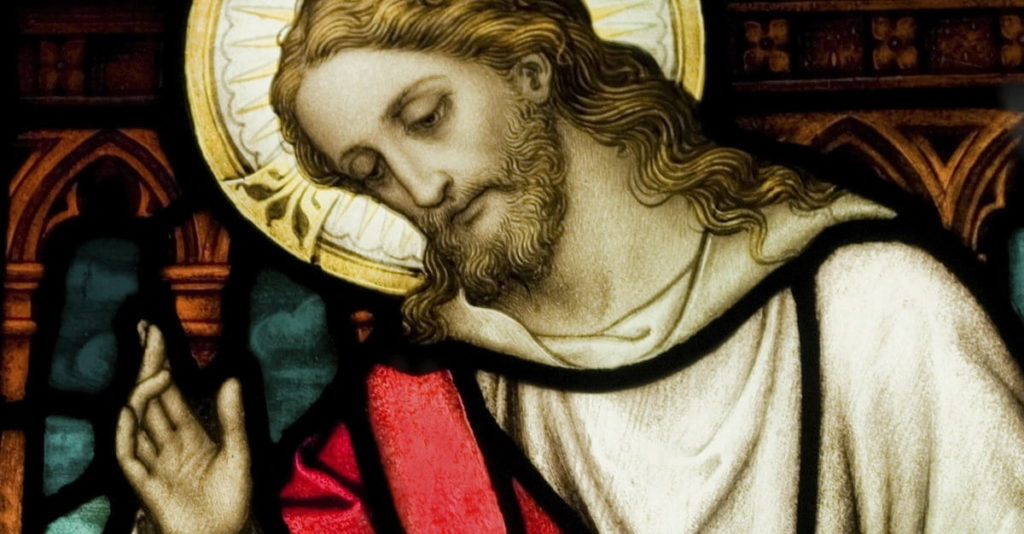
May 3rd, 2020
the fourth Sunday of Easter
Today’s readings are:
Acts 2:42-47
Psalm 23
1 Peter 2:19-25
John 10:1-10
If you don’t have a Bible handy, you can click here to access these readings.
As I mentioned this morning already, today is the first day that we’ll be praying morning prayer instead of celebrating the Eucharist. Our liturgy this morning probably looks pretty much the same so far, and it will until after our prayers. Then we’ll say the Lord’s Prayer, wave goodbye, and sign off. It’s a pretty short service.
And it can feel, I think, like it’s a too short service. That it’s not long enough. I know, I know, Episcopalians often joke about how, if a Sunday service is too long, or if a sermon is too long, we get all antsy. We mumble and grumble and say, “Come on, come on, I’ve got to get to lunch!” But when it comes to praying morning prayer on a Sunday, after the dismissal, often we all sit in our pews for a bit and wonder, “Wait a sec. Something’s missing.” Something big is missing.
For Episcopalians, and I’m sure for other Christians who celebrate God in the historic liturgy, it’s not really about length; it’s about robust worship. Even if we don’t sing, we love music, and music that is deep and soul-searching. Even if the sermon should be only ten minutes, we want a good, thought-provoking sermon that hits the heart as much as the head. And we’ve come to want, to expect, to hope for, the Eucharist. Whether the service is too long or too short, whether the prayers of the people are straight from the Book of Common Prayer or prayed in the Spirit, really, we Episcopalians want to make sure that the Eucharist is celebrated. And we hope for it every week.
This isn’t how it always was. Back before our current prayer book, a time when some of you might remember, we celebrated the Eucharist once a month. And back even earlier, folks celebrated it four times a year, or just once a year. And that’s all just fine, but over the years the Church has come to realize that there is great joy in meeting Jesus in the Most Holy Sacrament week after week after week. There is great spiritual depth, an open well of life, a hope, and a joy that exceeds anything in this world, in reaching out our hands and receiving the Body and the Blood of our Lord Jesus Christ each and every week.
I remember the first time I received Communion in an Episcopal Church. It was in Athens Georgia. My good friend Joseph had suggested we go. I had read about the Eucharist while studying medieval literature, and I had seen in while at a Roman Catholic friend’s funeral in high school, but I had never participated in one, I had never been part of one. And so we joined my friend and went.
Now, the first part of the service, the part we’re praying this morning, I knew – readings, prayers, I got that; the kneeling and standing was new, but that’s cool. But then the priest, Father Edwin, sung the sursum corda, and my heart began to sour, just like those words sursum corda mean: lift up your hearts! In just the prayer I saw hinted the beauty of heaven, and that was even before I went up with everyone else, knelt at the altar rail, and received the Body and Blood, and, as we Episcopalians believe, literally tasted heaven. And my thought at the end of it all was: This is the most beautiful thing I have ever seen. I want to do this forever.
Jesus is the most beautiful thing we will ever see. And that’s not to say that sunsets and springtime flowers and the faces of our spouses and children and the good love of someone giving up their lives for those around them, that these things aren’t beautiful. But the source of their beauty, the source of all beauty and goodness and love, of hope and truth, the source of all that, the very Gate of Heaven, is Jesus, who we meet in the Most Blessed Sacrament. For the Eucharist is not just something we humans made up because we like making up ritual. It’s not something we created with our own hands, but that we received from the hands of God in Jesus Christ. For the Good Man said, “Take, eat, this is my Body, given for you!” And our Scriptures remind us, “And Jesus was made known to them in the breaking of the bread!” and “The Bread that we break, is it not a sharing in the Body of Christ?”
And now, on this fourth Sunday of the Easter season, now your priest has said, hey, let’s take a break from all that. This Eucharist, a gift from our Lord Jesus Christ himself, yeah, let’s take a breather from it. Even though you yourselves haven’t been literally partaking in the Bread and the Wine but have, with Lisa, prayed a prayer for Spiritual Communion, even so, just sticking to morning prayer may seem for you like we’re stopping worship, not just easing off the gas but stopping the car and stepping out the door. What gives? What do we do now? How do we wait until the last Sunday of the month (which, I’ll note here, is the festival of Pentecost, the very birthday of the Church), how do we get along without it?
I will answer this question with a story. Back after college, I spent two years in Japan teaching English. And while I had studied Japanese before, all I could really do was ask for simple directions, talk about the weather, ask for the time (and understand the answer); you know, stuff you learn in a class. I could hold simple conversations, but, man, when it came to reading, on the whole, I was completely illiterate. I went from studying literature in college, reading stuff like Shakespeare and knowing what the man was saying, to not knowing how to find a sign for the bathroom. I mean, I could catch a glimpse of things in English, sure. And there was an English bookstore in Kyoto, and I’d go there and devour whatever I bought. But for the most part, I was illiterate. The world around me was full of symbols that I didn’t have the first idea of how to read.
And it was horrible. I’m a reader. It’s how I understand the world around me and the world within me. It’s the bread for my butter, the burger for my ketchup. I imagine that folks who play sports might feel this way when they’re injured and laid up in bed. Sure, they can watch a game on the television, and that’s great, but it’s just not the same. They want to be on the field, hearing the crowd roar, pushing their bodies to the limit and then finding they can push themselves more. That’s how I felt about reading, and about not being able to read.
Now, I’m not sure if this is how it works for people who play sports, but for me as a reader, being illiterate for a while – changed me. When I returned here to the US, at first I read things voraciously. I took a good friend to a bookstore with me and asked him, “Give me anything you think I should read.” He gave me $150 worth of books. And that was fine. I didn’t care. I wanted to read.
But something else began to happen. I began to hear my language differently. This language that I had spoken ever since I was a little toddler, I heard it with new – with renewed – ears. Where once I had found it just kinda ho hum, now I found it to be beautiful. I read good old Shakespeare, who I thought was sometimes just confusing to be confusing, but now found him to be full of wisdom and heart and humor (though still a bit confusing). I even saw signs on the side of the road and marveled at the beauty that they were in English. My language had been a tool before, just something that I’d used to order a pizza or tell a stupid story or, mea cupla, insult someone. Now I saw it to be just what it is: a gift. And I wanted to use it as a gift.
This is, at least, my experience, and I offer it to you as we think about Holy Communion. For now, we cannot receive the Eucharist, we cannot celebrate the Sacraments as they ought to be celebrated: the Sacraments, those most holy gifts of God. We’ll be praying a different prayer, something from our prayer book tradition in which we turn our hearts to God. For somewhere in the world the Eucharist is being celebrated, and that celebration of the Heavenly Banquet, which is the heart and soul of each celebration of the Eucharist, is eternal. It knows nothing of place and time because it looks to Heaven, not to Earth. But the Eucharist won’t be celebrated here at St. James at that altar behind me. And that’s okay. God is still with us. The Eucharist isn’t the only way to God – Jesus is the Gate, and Jesus is all throughout the world, walking in the forests, sitting there with you at home, in the open hands of the poor who are begging for food, in our own open hands, giving, giving, giving.
And it’s okay to mourn the fact that we aren’t celebrating here, that we’re just praying Morning Prayer a while. It’s okay to mourn something like this. But while we mourn, while we long for and miss and feel weird about just praying Morning Prayer, let’s reflect on what the Eucharist means. What does it mean to us? What does it mean to the Church? What does it mean to our lives as Christians? What does it mean to you, being given a gift from God each and every week; and what does it mean to you, unable to receive that gift fully during our time of quarantine? And what will it mean to you when, finally and at long last, you can come to this altar, hold your hands out once more, and have those hands filled with the very stuff of Life Eternal?




